Entrepreneur Nisreen Hasib Questions All The Rules
August 16, 2019 | Filed in: Woman of the Week
Here at M.M., we love hearing the career stories of women who aren’t afraid to reinvent themselves. After growing up in a tiny town in California’s San Luis Obispo County, Nisreen Hasib was convinced she wanted to be a lawyer. But after completing her degree at Northwestern and experiencing law-firm life, she realized she was better suited to be an entrepreneur. Now the COO of Unbound, a sex-tech company, she works to democratize the conversation around our bodies, our sex lives, our relationships, and our fundamental connection as humans. Below, we chat with her about the power of listening, the joy of dressing like a statue, and the courage to be extraordinary.
I’M THE OLDEST OF SEVEN, and my upbringing shaped me in ways that still show up in my life. I watched my mom create systems for efficiency—that’s just something that becomes necessary when you’re managing seven kids. I also learned how to teach myself things that my mom didn’t have time to teach me. Now, in my career, I can look at any situation and figure out how to make it more efficient, how to scale it up, how to pull in resources, and how to get people in the right roles to get something done. Everything feels solvable to me.
Want more M.M.? Sign up for our newsletter.
I WAS MISCHIEVOUS as a kid. In first grade, I figured out how to undercut the sell price of the candy in the cafeteria. I asked my mom to buy me a whole bunch of candy from the store, and she was skeptical, because I was one of those weird kids that didn’t even like candy. But I started selling it on the playground, and then getting other kids to sell, and I gave them a commission—although I didn’t know that word at the time. I had like five or six kids working for me, and finally my teacher found out and sent me home. My mom was like, “What are you doing? You can’t sell candy at school!” And I asked, “Why?” But she didn’t have a good answer for me.
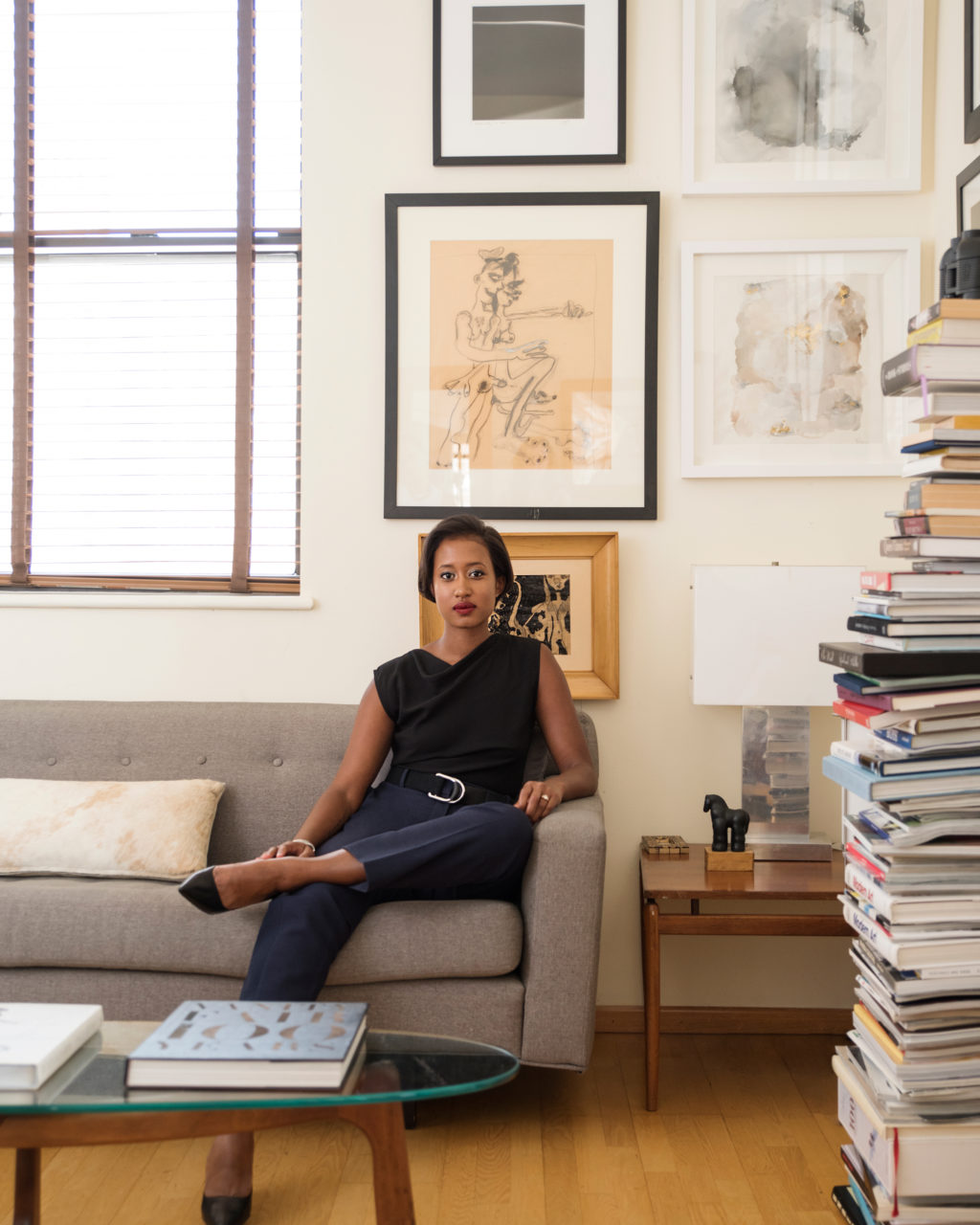
Nisreen wears the Rowling top, the D-Ring belt, the Elliott trouser, and the Ginger pump.
AFTER FIRST GRADE, I WAS HOMESCHOOLED. But then I grew to be a little bit too much of a handful for my mother, so I enrolled in normal school in eighth grade. I had a specific conception of what school would be like—based on teen lit I had read—but it was quite different than I expected. I was one of a handful of Muslims in my school, and two weeks after I started, 9/11 happened. Another student actually asked me if I worshipped Osama Bin Laden. I wore a hijab then, and on school picture day, the photographer told me to remove it because “gang wear” was not allowed in pictures. I refused to take it off, so they suspended me.
MY AUNT WAS ONE OF THE FIRST BLACK WOMEN to go to Duke Law School, and she ended up becoming a judge. She came up during the Civil Rights Movement and really blazed a trail. Even at a very young age, I was aware that you could use the law as a force to change society for good. I decided to go into labor and employment law because I grew up in an area in California with a lot of blue-collar workers, migrant workers, and women who were the sole providers for their households—including my mom. People in those jobs often have their rights violated or abused, but they’re in between a rock and a hard place if they want to stay employed.
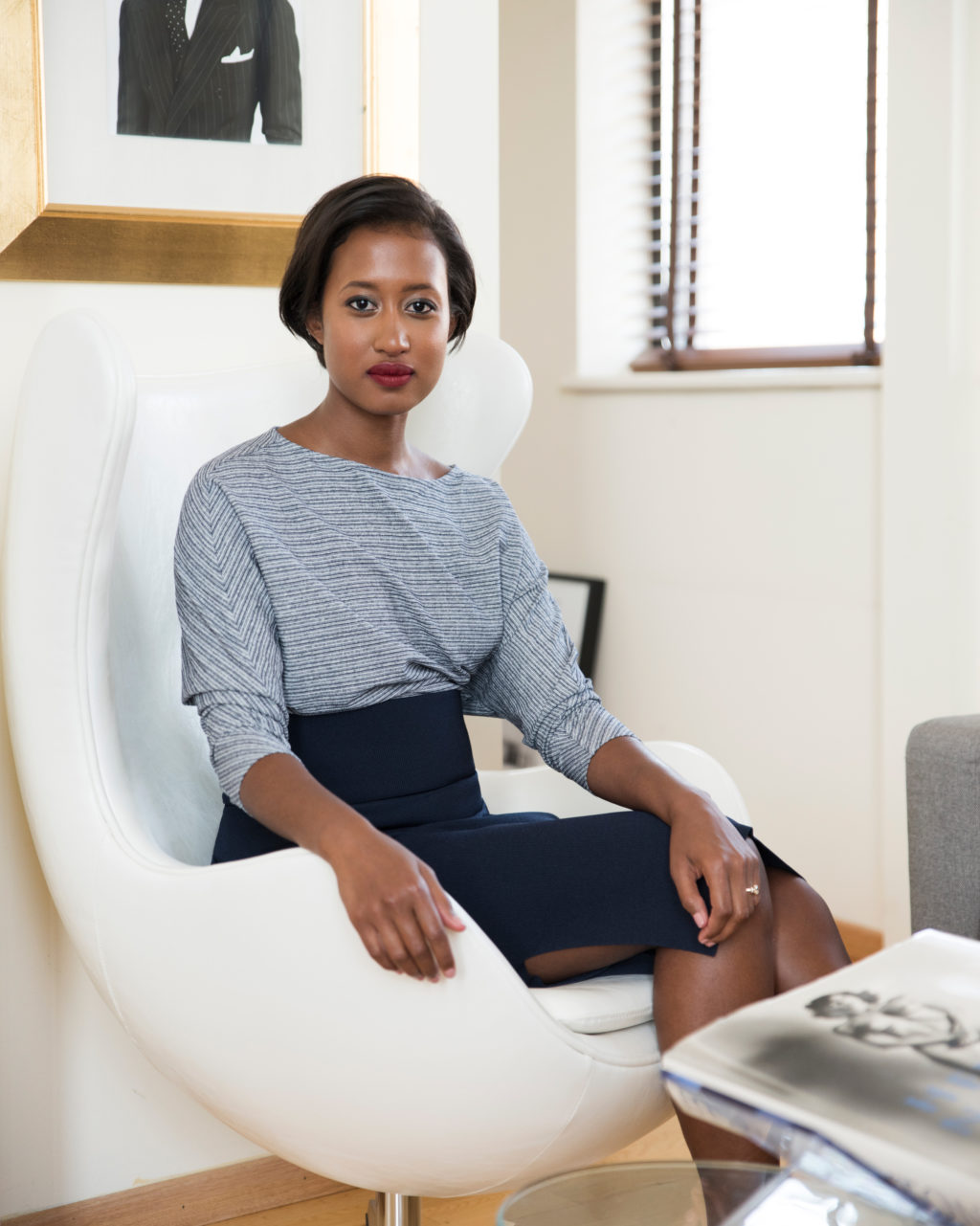
Nisreen wears the Justine top and the Harlem skirt.
I NEVER INTENDED TO GO INTO BUSINESS, but after summering at a top labor employment firm, I reached a turning point. The hard thing with litigation boutiques, especially if you’re doing claimant-side work, is you have to be strategic about the cases you take on. It’s basically a business decision, because you don’t make money unless you win. I pitched a case to the partners of my firm in which a woman was being intimidated by her male co-workers in a cereal processing plant, but they said, “We can’t take this on, because the harms committed against her aren’t bad enough.” I felt discouraged by that system and began to think about other career paths.
IT SOUNDS REALLY DRAMATIC, but I felt like, “I’ve worked my entire life to be a lawyer, and this isn’t working out at all. What do I do?!” I was 25 or 26—a very dramatic age. I ended up connecting with a man named Wilson Tsu who had gone to my law school but left law to start a software company called LearnLeo. I was like, “I have no business experience, no software experience. I am not a technical person.” He took a chance on me, and I worked for him for three years and learned so much.
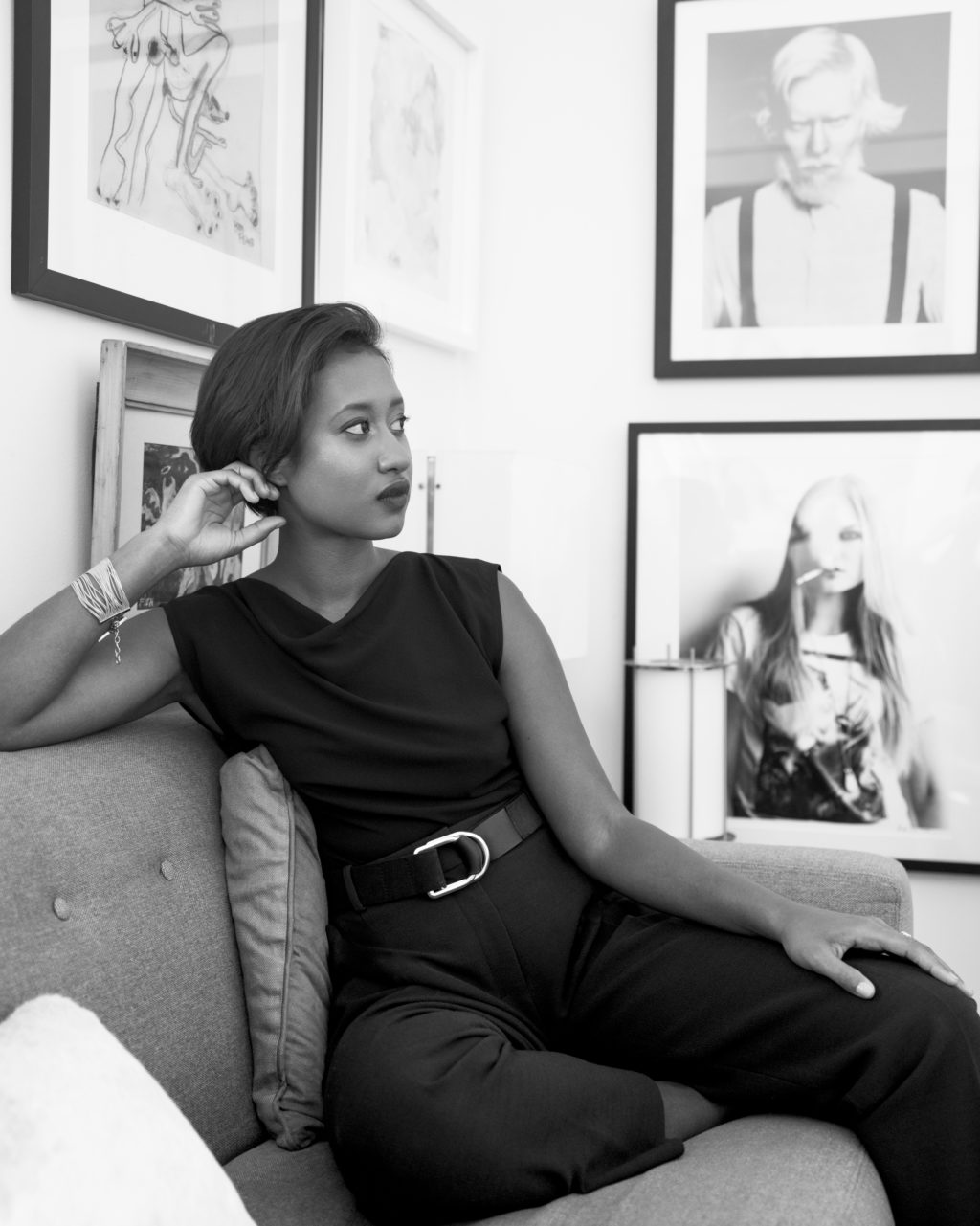
Nisreen wears the Rowling top, the D-Ring belt, and the Elliott trouser.
I WAS THINKING ABOUT BECOMING A VENTURE CAPITALIST when the opportunity with Unbound crossed my radar. I was a little bit skeptical about working for a sex-tech company, but once I met with the team, everything came full-circle. The conversation we had centered around giving people permission to know themselves and their bodies in a world that doesn’t encourage us to do those things.
MY CORE GOALS HAVEN’T REALLY CHANGED since I was eight or nine. I know that’s unusual, but I’ve never been driven by things like money or other people’s markers of success. The thing that drives me is advocating for people who might not necessarily have my platform or my level of access. Labor law was one version of that, and our work at Unbound is another version. If I ever start to drift from this goal, it’s a sign to me that I’ve taken a wrong turn and I need to rethink what I’m doing.
MY MOST POWERFUL MOMENTS at work are when I go into our customer service inbox to hear what folks are saying. The ones that always get me are people who have experienced sexual assault or trauma, and they use our products to reconnect with their bodies and reclaim their sexual agency. Those messages make me cry, and I have to hide out for a bit before returning to the open office.
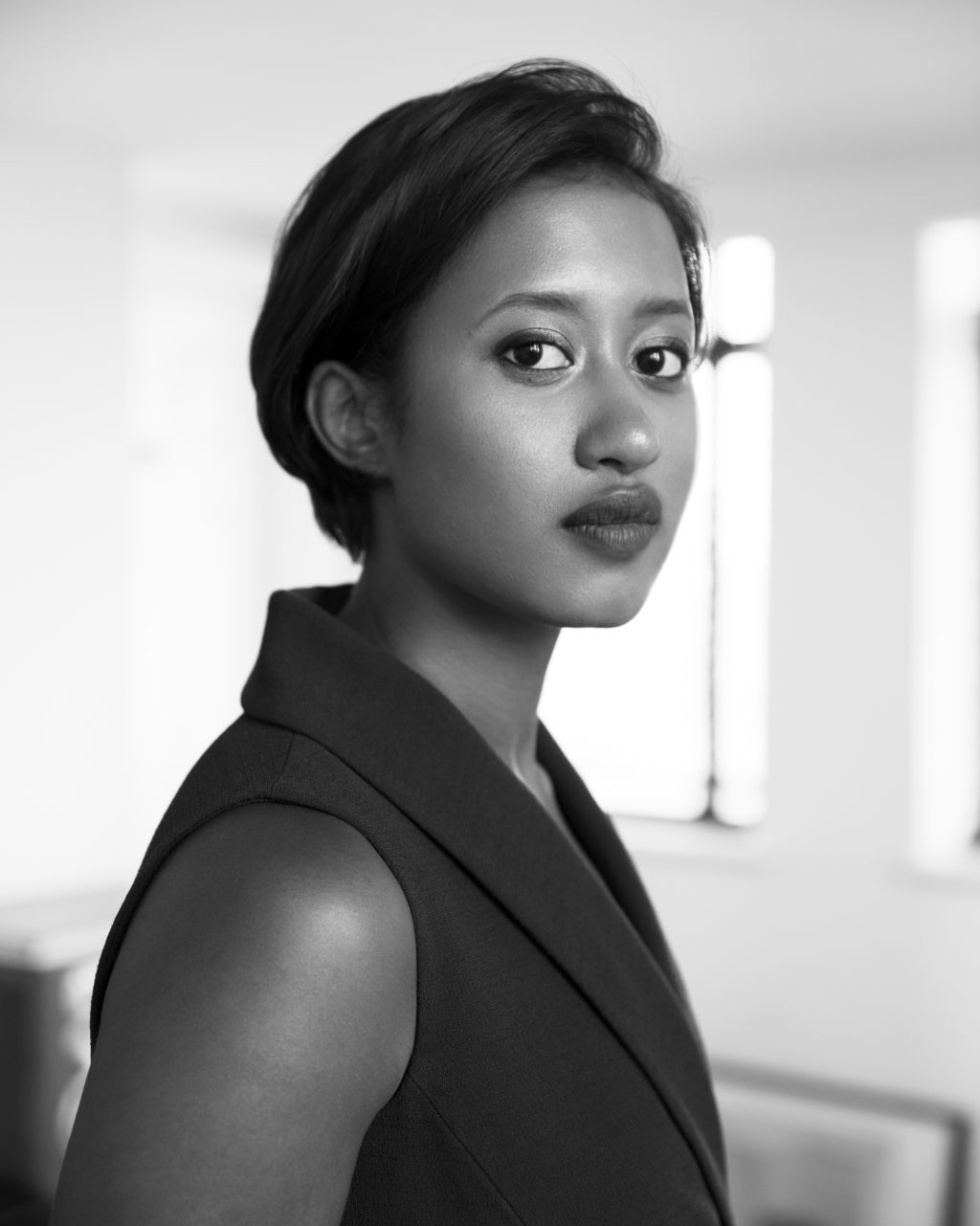
Nisreen wears the Dana Dress.
I’M FORTUNATE TO BE SURROUNDED BY AMAZING LEADERS AND MENTORS whose styles I try to emulate. The thing that strikes me about these people is how much they listen. They’re very present; they’re not looking at their phone. They might write something down while you’re talking, but there’s always that connection. I think when you’re able to be present, to listen, and to be empathetic, then you’re able to truly understand how you can empower your employees, your team, your whole company. It starts with listening.
ON A GOOD DAY, MY STYLE is very Olivia Pope from Scandal or Meryl Streep in The Devil Wears Prada. I love anything with interesting sculptural details. I’m currently shopping for my wedding dress, and I told my friend I want to look “like a statue that everyone’s kind of afraid to touch.” I like a little intimidation factor. During the week, I pick out my work outfits the night before. I wake up early to work out, so I like to have my bag ready to go. I love the feeling of finishing my workout, having a shower, and then slipping into my adult clothes for the day.
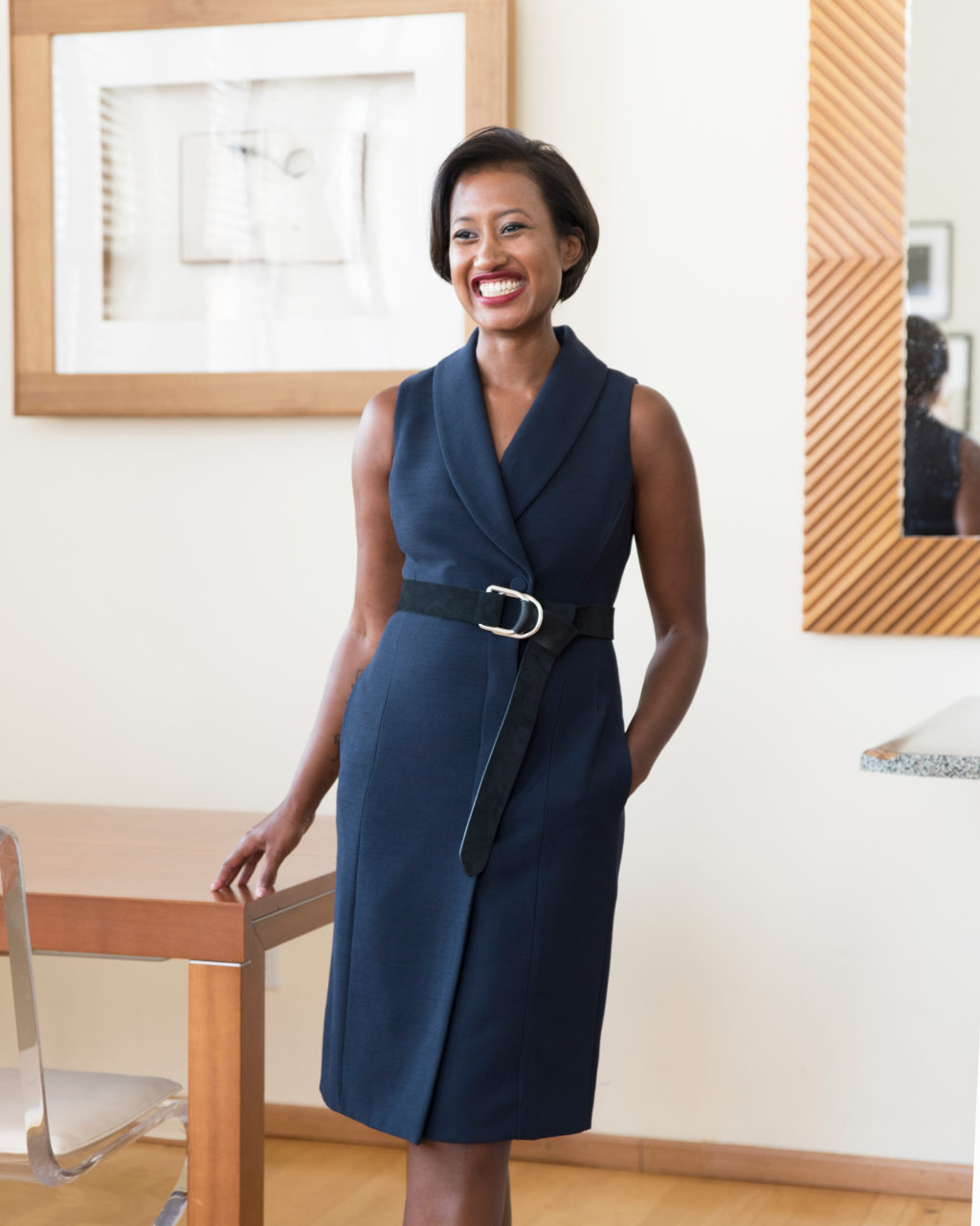
Nisreen wears the Dana Dress and the D-Ring belt.
I’VE ALWAYS USED CLOTHES AS A CANVAS to present myself to the world. That may have come from wearing a hijab as a girl, which made it obvious that I was Muslim. Now that I work in the tech space, I still love standing out. I love being known as someone who has her shit together, who knows how to lead, and isn’t afraid to. When it comes to being a woman of color, I think we’re often discouraged from recognizing the power that lies within us—not just to be effective leaders, but to be extraordinary leaders.
Photographs by Matthew Priestley. Styling by Liz Young.





